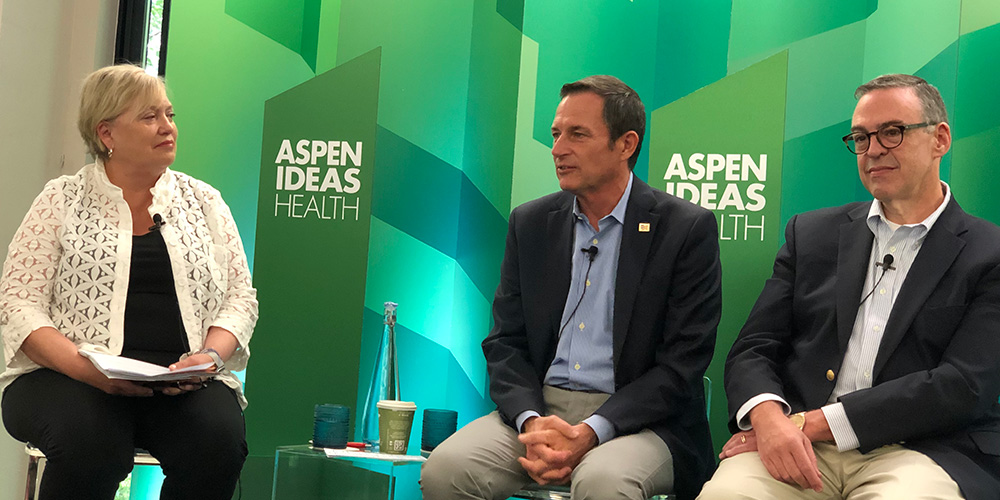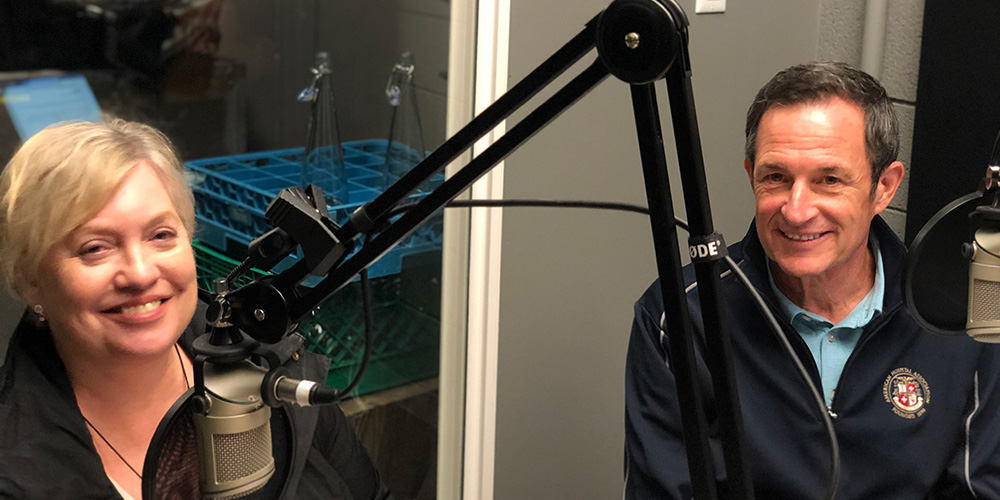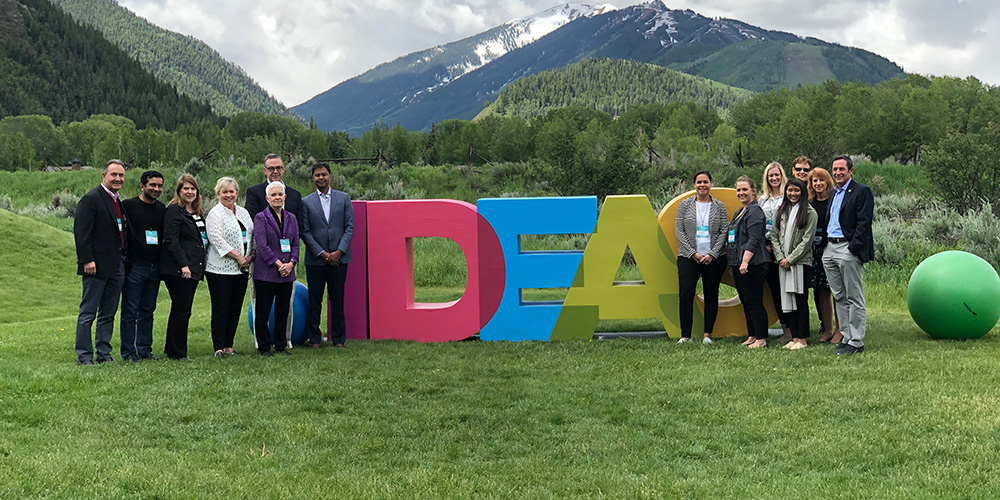A View from Aspen
At this year's Aspen Ideas Health conference, Atlantic Health System CEO and American Hospital Association Board Chair Brian Gragnolati joined an exceptional mix of inspiring and thought-provoking experts discussing the latest scientific, medical, social, technological, and public health breakthroughs from around the world.
During a session entitled “Healthcare Without an Address,” presented by the American Hospital Association, Gragnolati emphasized the importance of taking the "scare" out of health care. For most of us, even a routine screening test can bring fear and anxiety. But today, patients are also faced with the intimidating question, "What will this do to me financially?" And while the importance of high quality, affordable and accessible health care is widely agreed upon, the pathways to achieve these goals are paved with complex challenges.
Potential solutions to these challenges are as diverse as the hospitals and health systems tackling them. Dr. Saum Sutaria, chief operating officer of Tenet Healthcare, shared that rather than trying to be "all things to all people,” Tenet Healthcare realizes they can be more effective through focused efforts. For safety-net hospitals, such as Grady Health System, that provide care for millions of vulnerable, uninsured patients burdened by economic hardship, it is critical to find ways to increase (or even maintain) access to care. Grady President & CEO John Haupert shared how his system is transforming care delivery for vulnerable populations.
As hospitals look to reinvent care models, evolutionary partnerships – moving from transactional to strategic relationships – are growing. To illustrate their value, Gragnolati shared the example of his own system’s participation in the Healthcare Transformation Consortium (HTC). This collaboration was created to address a growing challenge faced by many businesses across the state: ensuring high-quality care for employees while reducing the overall cost of providing health insurance and delivering care. HTC participants, who collectively provide benefits to 75,000 employees and families in New Jersey, selected a common third-party administrator for their self-insured plans to reduce administrative costs. Now they are working together to identify employee wellness opportunities and best practices that can be replicated by organizations in other regions and states, as well as new ways to improve the quality and affordability of care.
Of course, health care organizations are not alone in facing the challenge of managing the cost of providing high-quality care for a workforce. Dr. Jerome Adams, US surgeon general and vice admiral of the US Public Health Service Commissioned Corps., highlighted this as a business imperative. Simply put, "The number one cost for Fortune 500 companies is salary. The number two cost for most Fortune 500 companies is health care." According to Dr. Adams, the cost of health care "is literally bankrupting many of these companies. There are major traditional US companies who are looking to go overseas because they can't afford to stay in the towns they're in because diabetes rates are through the roof or because the smoking rates are through the roof."




Another Aspen Ideas Health session offered insights on how leading employers are addressing employee wellness head on. During "The Business Case for Health: View from the C-Suite” panel, Donald Felix, Head of Financial Health for Chase Consumer Banking, JPMorgan Chase, focused on the importance of caring for employees when he noted, "It is a business and moral imperative," emphasizing that in addition to being the right thing to do, there is a real business value in having a healthier workplace. Improving health benefits for employees and addressing issues such as behavioral health make a difference in your team members’ ability to focus and thrive on the job (is this a quote?).
Jamie Kalamarides, President, Prudential Group Insurance, Prudential Financial, emphasized the need to invest in local communities. He shared details of Prudential’s commitment to Newark, NJ, where his organization is headquartered, including significant investments in the Performing Arts Center, affordable housing for teachers, urban farming and more. Kalamarides stressed that it’s incumbent upon employers to re-invest in their host communities, as only strong communities can address the social determinants of health that impact residents.
The strong ties between social determinants and health cannot be underestimated. As Dr. Adams pointed out, "Your zip code is more important than your genetic code in determining your health outcomes." Hospitals and health systems across the nation share a vision of a society of healthy communities where all individuals reach their highest potential for health. To that end, caregivers are designing new networks of care in patient homes, offices, schools, neighborhood settings, and on digital platforms. At Atlantic Health System, this has meant investments in data analytics to better identify and address needs, bringing together interdisciplinary teams, and strategic partnerships beyond the traditional boundaries of our hospitals to improve accessibility, affordability, patient outcomes, and the entire care experience.
It is important to make the distinction between health and health care. The goal is better health and this will require the efforts of health care systems, businesses, communities and individuals. As Dr. Adams reminded us, “It's important that we help folks understand that yes, there are individual choices, but the choices people make are 100% dependent on the choices that you put around them in the environment that they're living in. If we invest in a better environment, make the healthy choice the easy choice, more people will start to make healthier and better choices and it won't just help them. It helps all of us.”
Valerie Simon is Chief Marketing Officer for Atlantic Health System and a 2019 American Hospital Association Aspen Health Scholar
